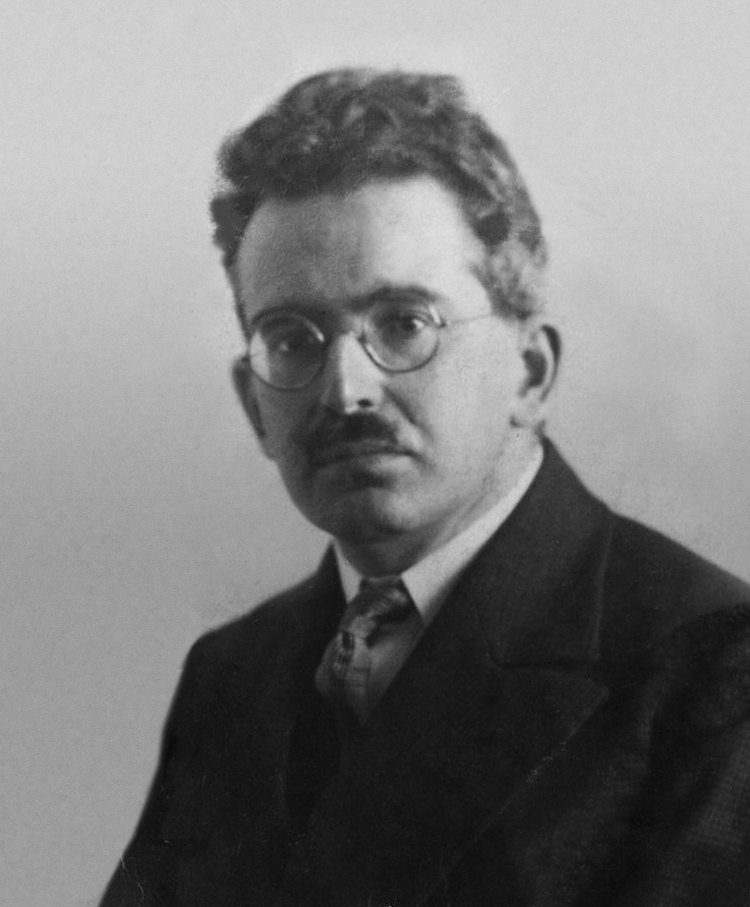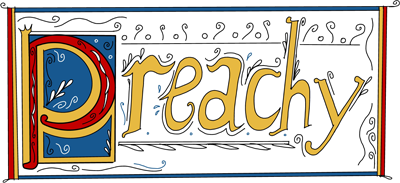
In the Year of Our Lord: Reading Coronavirus as Divine Violence
At the dawn of every history aimed at ensuring security and making peace with death, it shall be written: ‘In the beginning, there was the word’. At the dawn of every new temporal order, however, it shall be written: ‘In the beginning, there was violence’.
Giorgio Agamben
 If one were searching for an aphorism that successfully encapsulates the nearly universal cognitive disconnect precipitated by the ongoing pandemic, one might consider “God works in mysterious ways.” It’s a pithy shrug of the shoulders with utilitarian appeal. This appeal, of course, lies in its humbling and sardonic admission: Nobody knows why the fuck things happen the way they do. For anyone not fortified with a healthy dose of cynical resignation, it’s also, maybe, uttered in earnest; a concession that the limits of human understanding have been reached, and the divine simply employs a system of logic that we are incapable of comprehending.
If one were searching for an aphorism that successfully encapsulates the nearly universal cognitive disconnect precipitated by the ongoing pandemic, one might consider “God works in mysterious ways.” It’s a pithy shrug of the shoulders with utilitarian appeal. This appeal, of course, lies in its humbling and sardonic admission: Nobody knows why the fuck things happen the way they do. For anyone not fortified with a healthy dose of cynical resignation, it’s also, maybe, uttered in earnest; a concession that the limits of human understanding have been reached, and the divine simply employs a system of logic that we are incapable of comprehending.
And what better time to appeal to the divine than in the middle of a global pandemic? In late March, not long after the reality of the pandemic sunk in, the Pew Research Center found that more than half of Americans prayed for a swift end to the virus. Around the same time, an opinion piece appeared in the Wall Street Journal that likened COVID-19 “to a plague of biblical proportions.” In true Christian revivalist fashion, the Journal piece suggested that the pandemic might lead to a sort of American renaissance: “a grand creative moment in America’s history [where Americans] shaken by the reality of a risky universe, rediscover the God who proclaimed himself sovereign over every catastrophe.”
What this reveals about human thought patterns is not especially surprising. When we are out of our depth, we return to what we know. If we’re feeling brave, we attempt to look beyond our current field of vision. Perhaps prayer lets us have it both ways: Prayer is enshrined in many (if not all) human cultures and yet it looks beyond for inspiration. As the months compound and modern life continues to struggle with the reality of COVID-19, for millions of people across the globe, there has never been a more appropriate time to turn to God and admit one’s helplessness.
A similar feeling extends to those who aren’t compelled by theism. There is a pervasive sense amongst those who do not hold religious faith that the only way we’re getting out of this ghastly year in one piece, is to arrive at a previously unimaginable solution, Deus Ex Machina.
Beyond the universal acknowledgment of helplessness what we hope to achieve should be fairly obvious: In a word, we seek deliverance.
Our Father which art in heaven, Hallowed be thy name. Thy kingdom come, Thy will be done in earth, as it is in heaven. Give us this day our daily bread. And forgive us our debts, as we forgive our debtors. And lead us not into temptation, but deliver us from evil.
But what if deliverance isn’t concordant with our desires?
For that, Walter Benjamin and his notion of divine violence – the ultimate example, perhaps of God working in mysterious ways – proves useful.
Benjamin outlines this concept in his early essay “Critique on Violence” — a brief and enigmatic treatise exploring the innate link between violence and law. One of Benjamin’s primary interests within this essay is the state’s effort to justify its use of violence, relying on myths to obfuscate uses of and the monopoly on said violence.
Among the more widely discussed and perhaps the most radical portion of Benjamin’s essay is his suggestion that this reliance on violence to maintain law traps all legal and political formations within a temporally static paradigm of violence. For Benjamin, all political and legal developments within this paradigm will continually resort to violence, unless a rupture occurs within the existing social and temporal orders. “On the breaking of this cycle […] and the suspension of law with all the forces on which it depends as they depend on it, finally therefore on the abolition of state power, a new historical epoch is founded,” according to Benjamin.
In other words, an exit from the paradigm of violence (and its indispensable sword and shield, law and myth) is only afforded by a rupture that stops nothing short of total negation — not only of existing structures of power and power relations, but of the conceptual tools that are employed to engage with and comprehend the world — a kind of revolutionary deliverance. It is this extra-judicial/political deliverance that Benjamin classifies as divine violence.
There is a pragmatic (if not pedantic) consideration that accompanies the difficulty of translating the essay from Benjamin’s original German. The German noun Gewalt presents a slight challenge to the translator. While Gewalt does translate as violence, it also translates as power, authority or force — each of which contain their own weight and add varying degrees of nuance. As such, when Benjamin speaks of “violence,” the fist-fight, the armed bank robbery or any other stock mental image one possess of violence per se is not especially apt. More to the point is what underlines violence: the assertion of power.
Of equal significance, one must account for the taxonomy of violence that Benjamin lays out in “Critique on Violence.” In addition to the aforementioned divine violence, Benjamin also posits the notion of mythical violence.. As noted above, myth and the mythical loom large in every social order. When these myths underpin law or come to justify violence under the guise of preserving social order, one can readily observe mythical violence in action.
Just as myths are a kind of grand (or fictitious) story, for Benjamin, these stories belie a profane order and falsehood. Conversely, the divine “constitutes its antithesis in all respects.” Where the mythical obfuscates, divine violence “strikes […] without warning, without threat, and does not stop short of annihilation. But in annihilating it also expiates, and a deep connection between the lack of bloodshed and the expiatory character of this violence is unmistakable.”
In short, divine violence negates the falsehood of myth (and so too a mythologized subjectivity), opening the flows for new possibilities and new forms of understanding. In doing so, this form of “violence” side steps the recourse to debased, physical assertions of power that remain at the heart of the mythical.
But what of the people deeply invested in the continuation of the prevailing order? At first glance, this tension initially seems to complicate the notion of divine violence: What would become of those adherents to religious faith(s), many of whom attribute their success to the doctrine of “prosperity theology” and, in some more extreme cases, even claim to be agents of divine will? Surely then, wouldn’t Benjamin’s divine violence represent a drastic break from the divine that had hitherto rewarded piety with good fortune and in doing so, bring about a large-scale crisis of faith?
Just as a manifestation of divine violence would innately and unequivocally represent the end of a judicial/political/mythical order, anyone proximal to that order would inevitably find themselves drastically altered — their relationship to the divine would be no exception. In the numerous instances of political figures throughout history and across cultures who claim to be doing the work of the divine or for those who follow the prosperity gospel, one can observe a similar phenomenon: an ex post facto attempt to lend an insulating legitimacy that is both absolute and unquestionable.
Witness the age-old strategy of divine right, or the belief that power is divinely ordained. Under this guise virtually any action can be subsumed as a work of the divine, carried out by an appointed agent. Those employing this strategy recognize that the divine origin which underpins “divine right” easily discredits any rejoinder: those in opposition to divine mandate are either incapable of understanding God’s will or, in denying God’s will, commit heresy.
Despite its rugged exterior, one can quickly see divine right remains tenuous and begin to unravel quickly. When are “divine” agents acting on God’s behalf? If one is at the divine’s employ at all times, wouldn’t the acceptance of divine violence — even if incomprehensible — be requisite? If not, then doesn’t this signal the presence of free-will, opening the possibility of acting in one’s own self-interest?
These questions ultimately illuminate a preoccupation with power (of which divine right is an outward manifestation). Consequently, divine violence doesn’t threaten to engender a crisis of faith, so much as it calls into question the legitimacy of existing power-relations and the supposed link between (human) power and the divine.
For Benjamin, this false nexus of power and the divine is easily spotted in their contrasting aims: “justice is the principle of all divine end making, power the principle of all mythical lawmaking” [emphasis mine]. The pursuit of power remains committed to using a schema of means (lawmaking) and ends (power) for self aggrandizement (within a static temporality). Conversely, divine violence — concerned only with justice— destroys temporality (and the need for law) in toto.
And that returns us to the question of rupture. The ongoing havoc wreaked by the COVID-19 pandemic is (at least) two-fold. In an immediate sense, there is a largely unmitigated health crisis, as a highly infectious respiratory virus continues to run riot in virtually the entire world. But the latent impacts of this global crisis reveal what is arguably an even greater problem: In this time of collective vulnerability, the notions of justice, equity, and opportunity are laid bare as pure myths.. Inefficiency and systemic racism within the American healthcare system, the inability of capitalism to respond to external crisis, the precarity of labor, the disproportionate burden of caretaking responsibilities placed on women have all revealed a violence that is endemic to neoliberal capitalism — a violence that myths can scarcely continue to conceal.
As these myths begin to lose sway, one cannot help but speculate, is the virus the divine violence which provides deliverance?
One can hope that from the upheaval of the pandemic any such “deliverance” does not simply produce an alteration (a “new normal” in pandemic parlance) or a return to (the old) “normal”; but rather, enables us to inhabit a different world. A world in which love, altruism, kindness, trust, and solidarity — true embodiment of the divine — will take the place of stilted profit motives and capitalist dynamics which have proven to be impotent in the face of the virus.
J.S.E. Saheb writes, contemplates the proper spelling of the word analog[ue], and daydreams about gulab jamun in Austin, TX.
